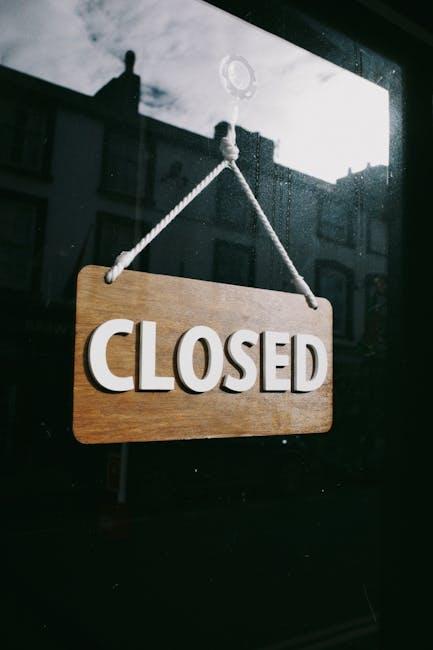In the intricate dance of modern dating, deciphering the emotional availability of a potential partner can feel like trying to solve a puzzle with missing pieces. In a world where vulnerability is often shielded behind curated profiles and carefully chosen words, understanding the true emotional landscape of your date becomes essential. This article delves into the subtle signs and nuanced behaviors that may indicate emotional unavailability, equipping you with the insights needed to navigate the complexities of romantic connections with clarity and confidence. Whether you’re venturing into new relationships or reassessing existing ones, this guide aims to illuminate the path to deeper, more meaningful connections.
Spotting the Signs of Emotional Unavailability
Understanding emotional unavailability can be crucial in forming healthy relationships. It’s often subtle and can manifest in various ways, leaving you feeling confused or frustrated. Here are some signs to watch out for:
- Inconsistent Communication: If your date frequently cancels plans, takes a long time to respond to messages, or avoids deep conversations, they might be emotionally unavailable.
- Avoidance of Emotional Intimacy: They might steer clear of discussing feelings or past experiences, keeping conversations superficial and lacking vulnerability.
- Indecisiveness in Commitment: A reluctance to define the relationship or take it to the next level can indicate a fear of commitment.
- Past Trauma or Unresolved Issues: If they often reference past relationships negatively or seem stuck in old patterns, they might be carrying emotional baggage.
- Lack of Empathy: Difficulty in understanding or valuing your emotions, showing little interest in your emotional well-being.
Being aware of these indicators can help you assess whether your date is ready for a meaningful connection or if it’s time to reconsider the relationship dynamics.
Decoding the Subtle Cues in Conversation
In the delicate dance of conversation, the unsaid often speaks louder than words. Recognizing emotional unavailability in a date involves tuning into these subtle cues, which can be as revealing as they are elusive. Inconsistency in communication is a primary indicator; a person who is emotionally distant may exhibit erratic texting patterns or cancel plans frequently. This unpredictability can leave you feeling unsure about where you stand. Additionally, take note of their conversational depth. Superficial discussions that avoid personal topics might indicate a reluctance to connect on a deeper level.
Another sign to watch for is their response to vulnerability. When you share something personal, observe whether they reciprocate with empathy or change the subject. A pattern of dismissive or non-committal responses can suggest a barrier to emotional intimacy. Also, pay attention to how they talk about past relationships. If they often reference “unfinished business” or seem to carry lingering resentments, it might reflect unresolved emotional issues. Recognizing these signals allows you to gauge the emotional availability of your date, helping you navigate the complexities of modern relationships with greater awareness.

Navigating the Challenges of Emotional Distance
Recognizing emotional distance in a budding relationship can be tricky, yet it’s essential for setting realistic expectations. Emotional unavailability often manifests through subtle cues, and being aware of these signs can help you navigate the waters of dating with greater clarity.
- Consistent Avoidance of Deep Conversations: If your date frequently steers away from discussions about feelings or future plans, it might indicate a reluctance to engage emotionally.
- Lack of Emotional Expression: Notice if they struggle to express emotions, be it joy, sadness, or excitement. An emotionally unavailable person might seem detached or indifferent.
- Prioritizing Independence: While independence is healthy, an excessive focus on it, to the point of excluding you from their life, can be a sign of emotional distance.
- History of Short-Lived Relationships: A pattern of brief romantic involvements may suggest an aversion to emotional commitment.
Understanding these indicators allows you to make informed decisions about your relationship’s potential. While everyone has their emotional barriers, recognizing when those barriers become walls can save you from future heartache.

Strategies for Encouraging Emotional Openness
Fostering emotional openness can transform a guarded interaction into a genuine connection. To encourage your date to lower their emotional defenses, consider these strategies:
- Practice Active Listening: Give your full attention when your date speaks. Show empathy and understanding by acknowledging their feelings without judgment.
- Create a Safe Environment: Ensure that your date feels comfortable sharing their thoughts and emotions. This might mean choosing a quiet, private setting or simply offering them reassurance that their feelings are valid.
- Lead by Example: Share your own emotions and vulnerabilities. By opening up about your experiences, you set a precedent for openness and honesty.
- Be Patient: Emotional openness doesn’t happen overnight. Allow your date the time they need to feel secure in expressing themselves.
- Ask Open-Ended Questions: Encourage deeper conversations by asking questions that require more than a yes or no answer. This invites your date to explore their feelings and thoughts more thoroughly.
Incorporating these strategies can create a foundation of trust and understanding, encouraging your date to become more emotionally available over time.








